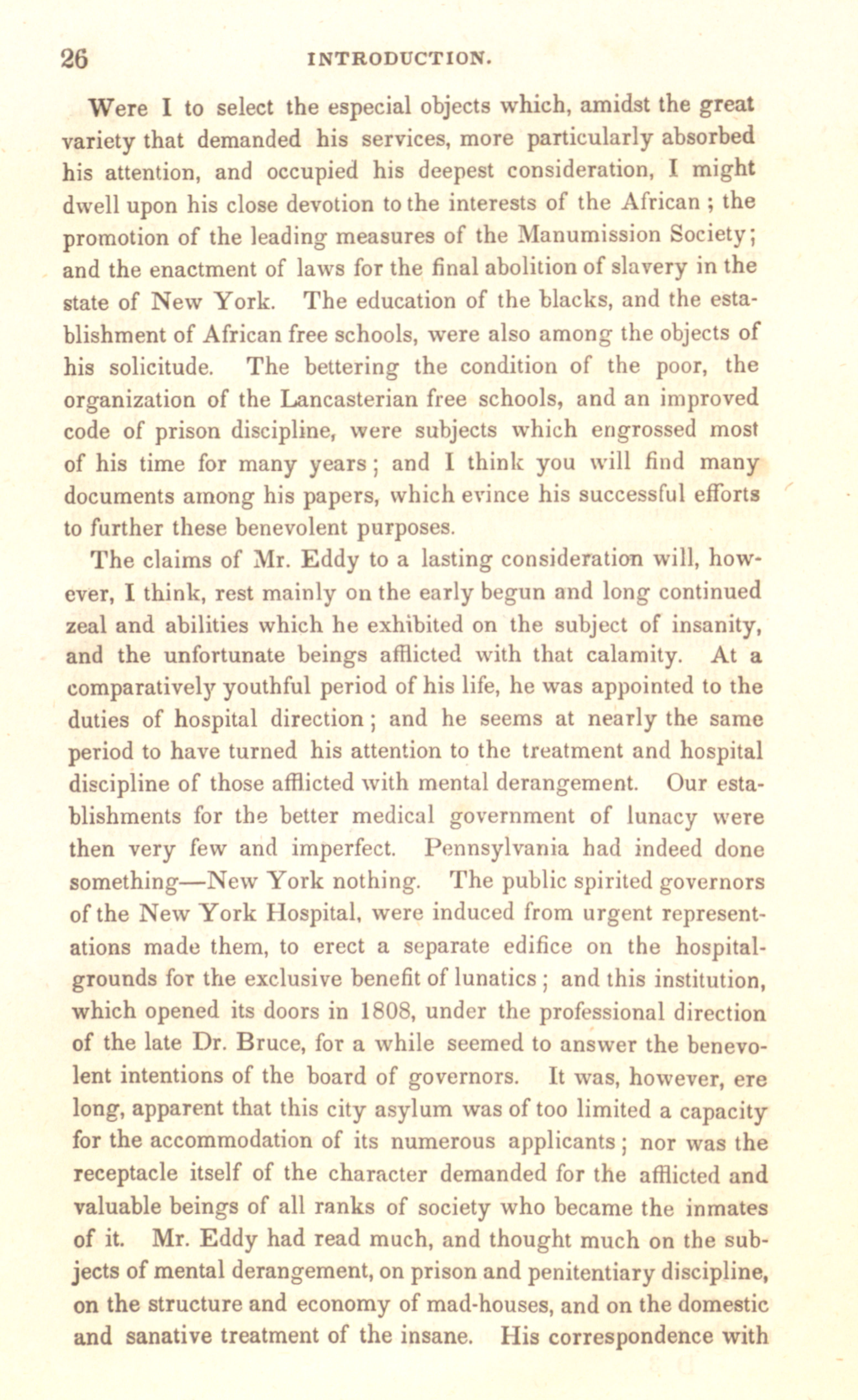Were I to select the especial objects which, amidst the great
variety that demanded his services, more particularly absorbed
his
attention, and occupied his deepest consideration, I might
dwell
upon his close devotion to the interests of the African; the
promotion of the leading measures of the Manumission Society;
and
the enactment of laws for the final abolition of slavery in the
state of New York. The education of the blacks, and the
esta-
blishment of African free schools, were also among the objects
of
his solicitude. The bettering the condition of the poor,
the
organization of the Lancasterian free schools, and an
improved
code of prison discipline, were subjects which engrossed
most
of his time for many years; and I think you will find
many
documents among his papers, which evince his successful
efforts
to further these benevolent purposes.
The claims of Mr. Eddy
ever, I think, rest mainly on the early begun and long continued
zeal and abilities which he exhibited on the subject of insanity,
and the unfortunate beings afflicted with that calamity. At a
comparatively youthful period of his life, he was appointed to the
duties of hospital direction; and he seems at nearly the same
period to have turned his attention to the treatment and hospital
discipline of those afflicted with mental derangement. Our esta-
blishments for the better medical government of lunacy were
then very few and imperfect. Pennsylvania
something—New York
of the New York Hospital
ations made them, to erect a separate edifice on the hospital-
grounds for the exclusive benefit of lunatics ; and this institution,
which opened its doors in 1808, under the professional direction
of the late Dr. Bruce
lent intentions of the board of governors. It was, however, ere
long, apparent that this city asylum was of too limited a capacity
for the accommodation of its numerous applicants; nor was the
receptacle itself of the character demanded for the afflicted and
valuable beings of all ranks of society who became the inmates
of it. Mr. Eddy
jects of mental derangement, on prison and penitentiary discipline,
on the structure and economy of mad-houses, and on the domestic
and sanative treatment of the insane. His correspondence with

